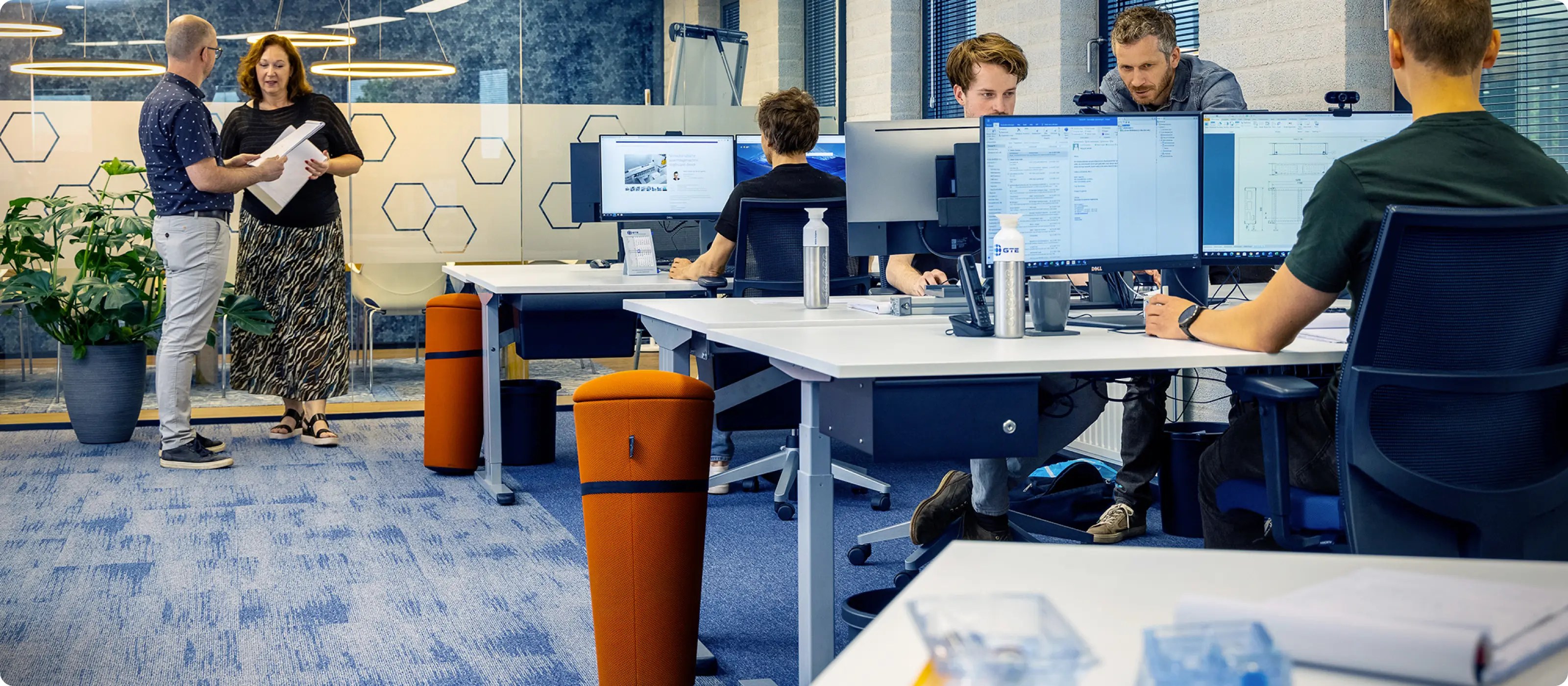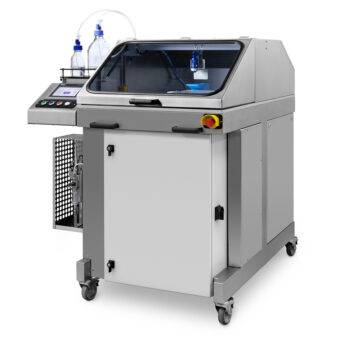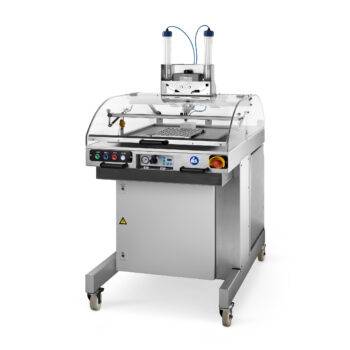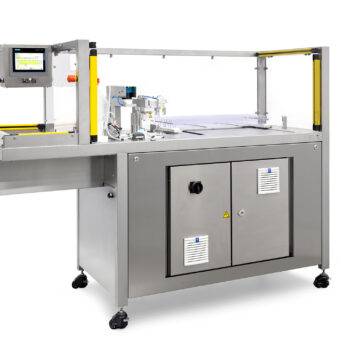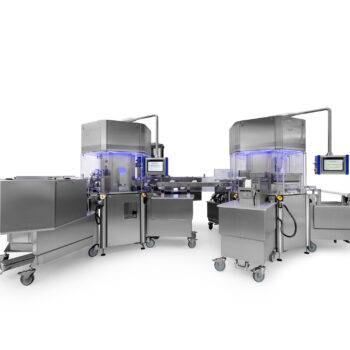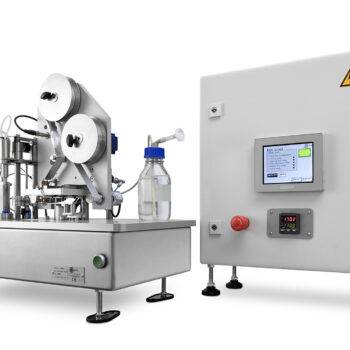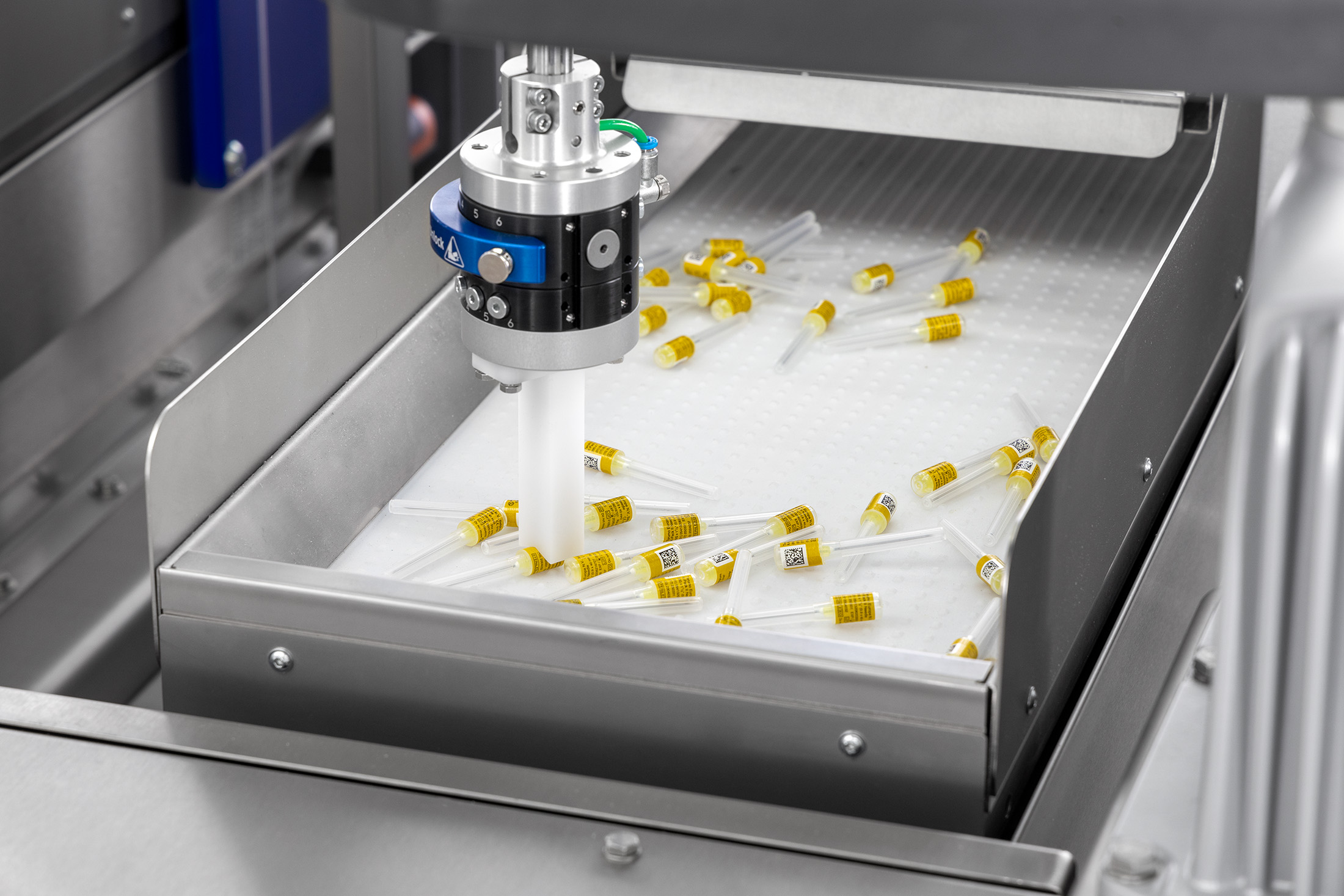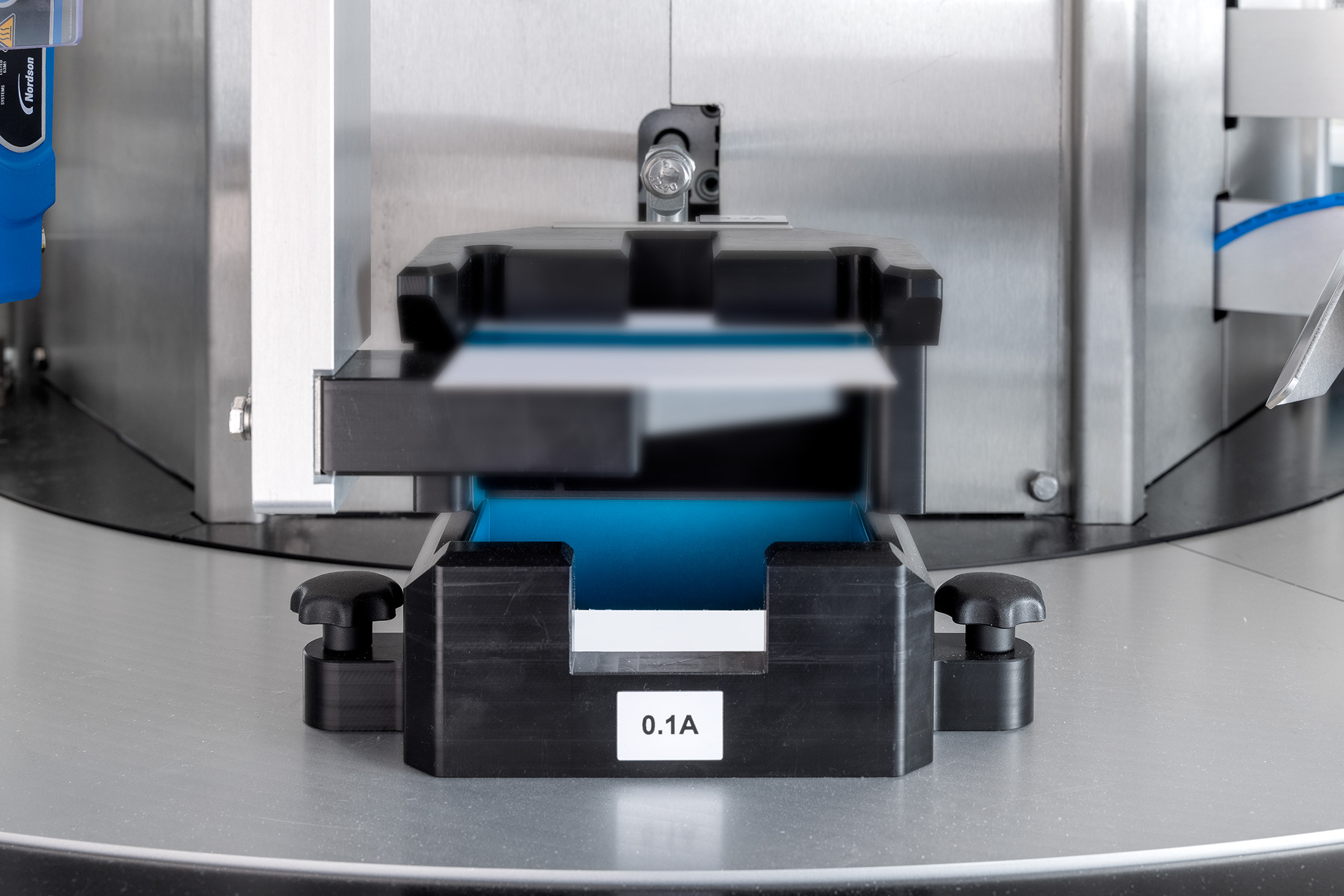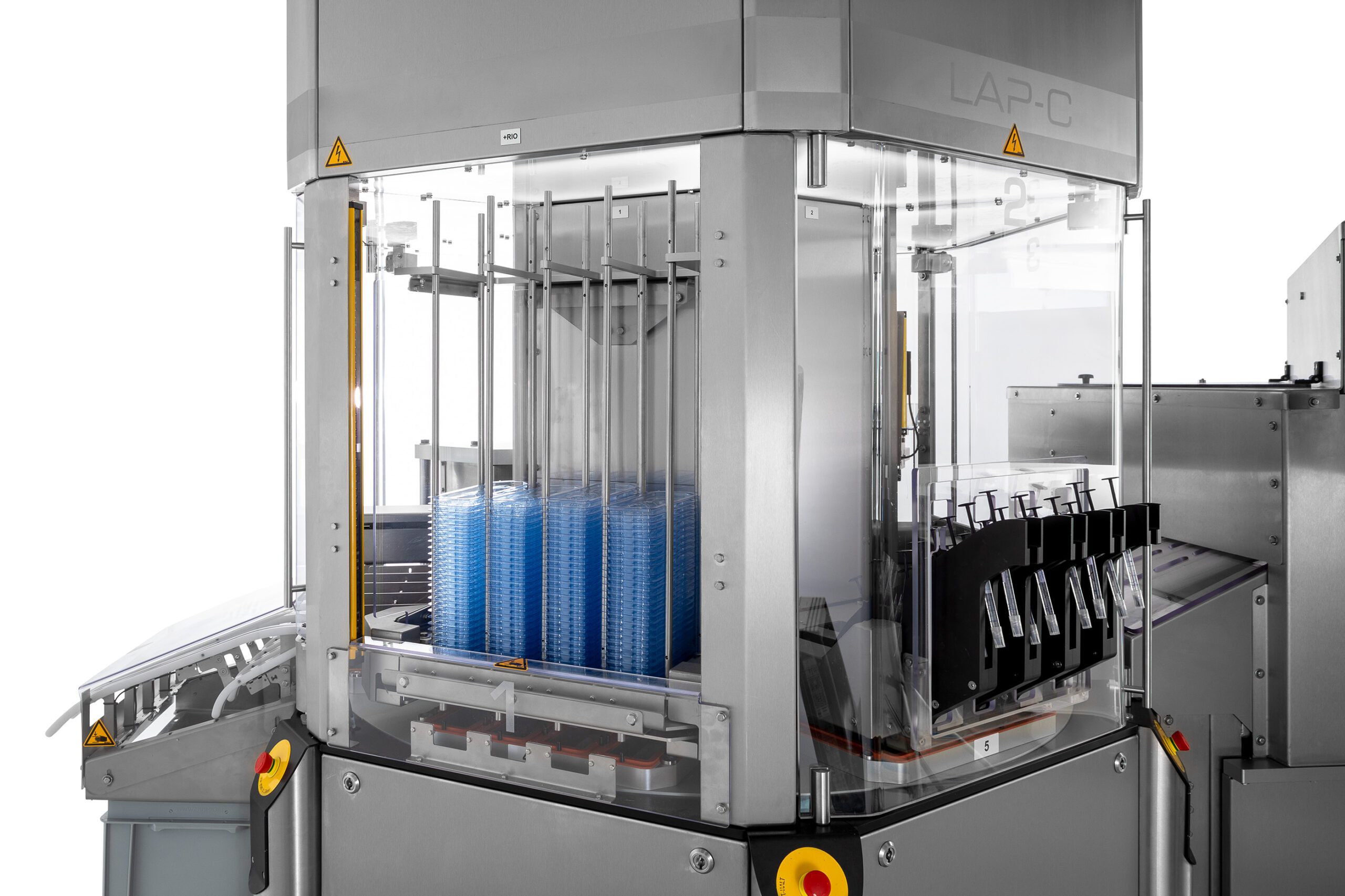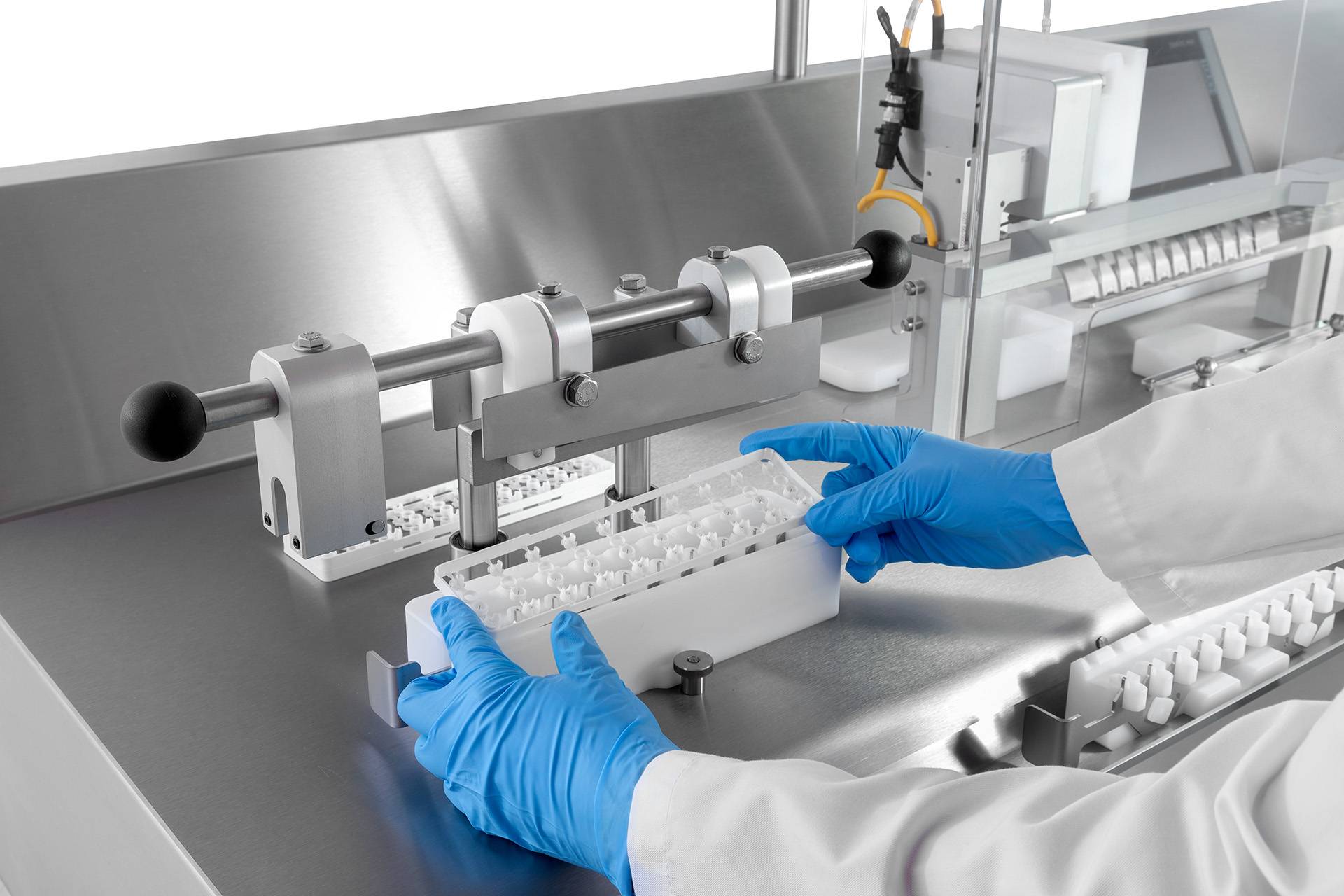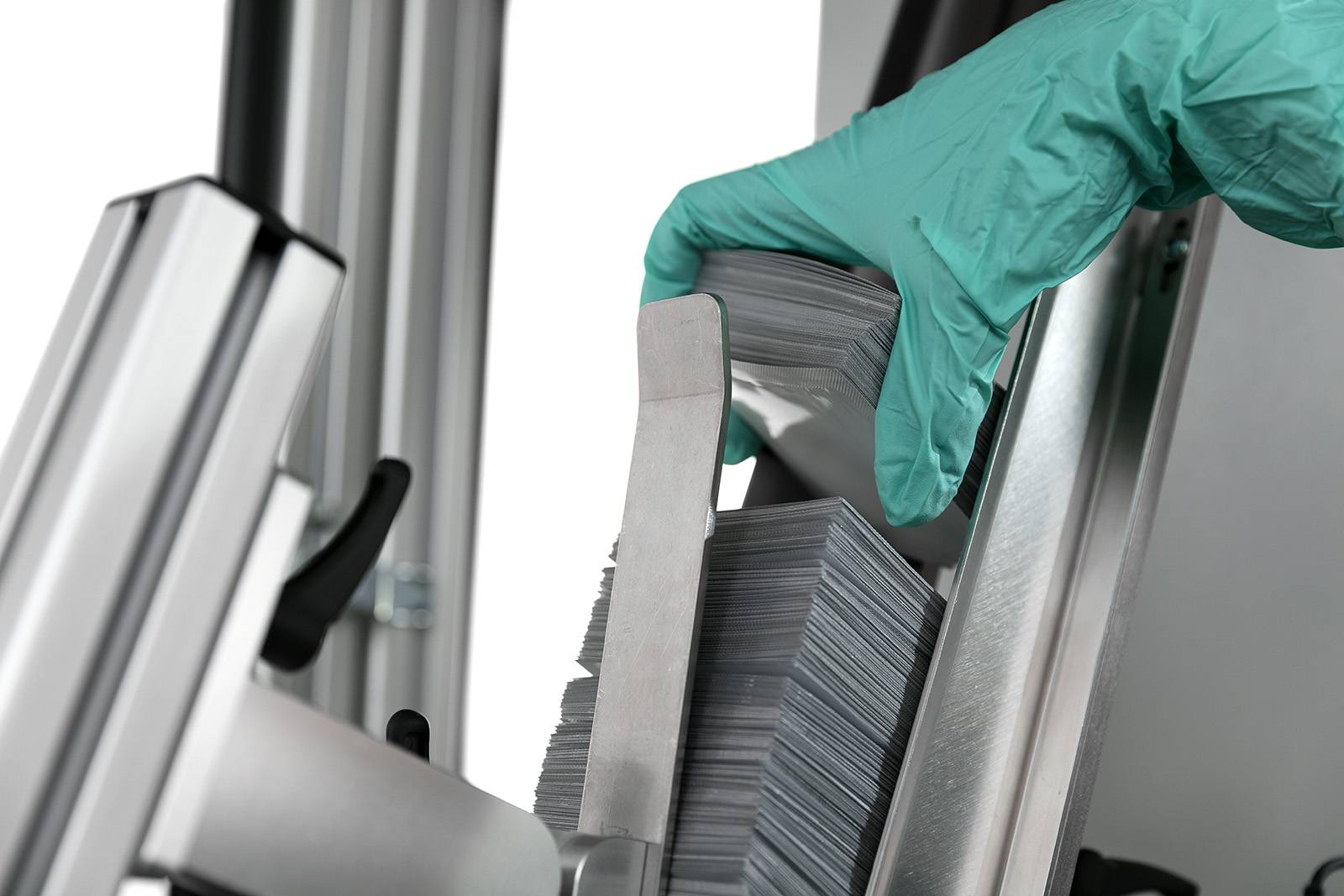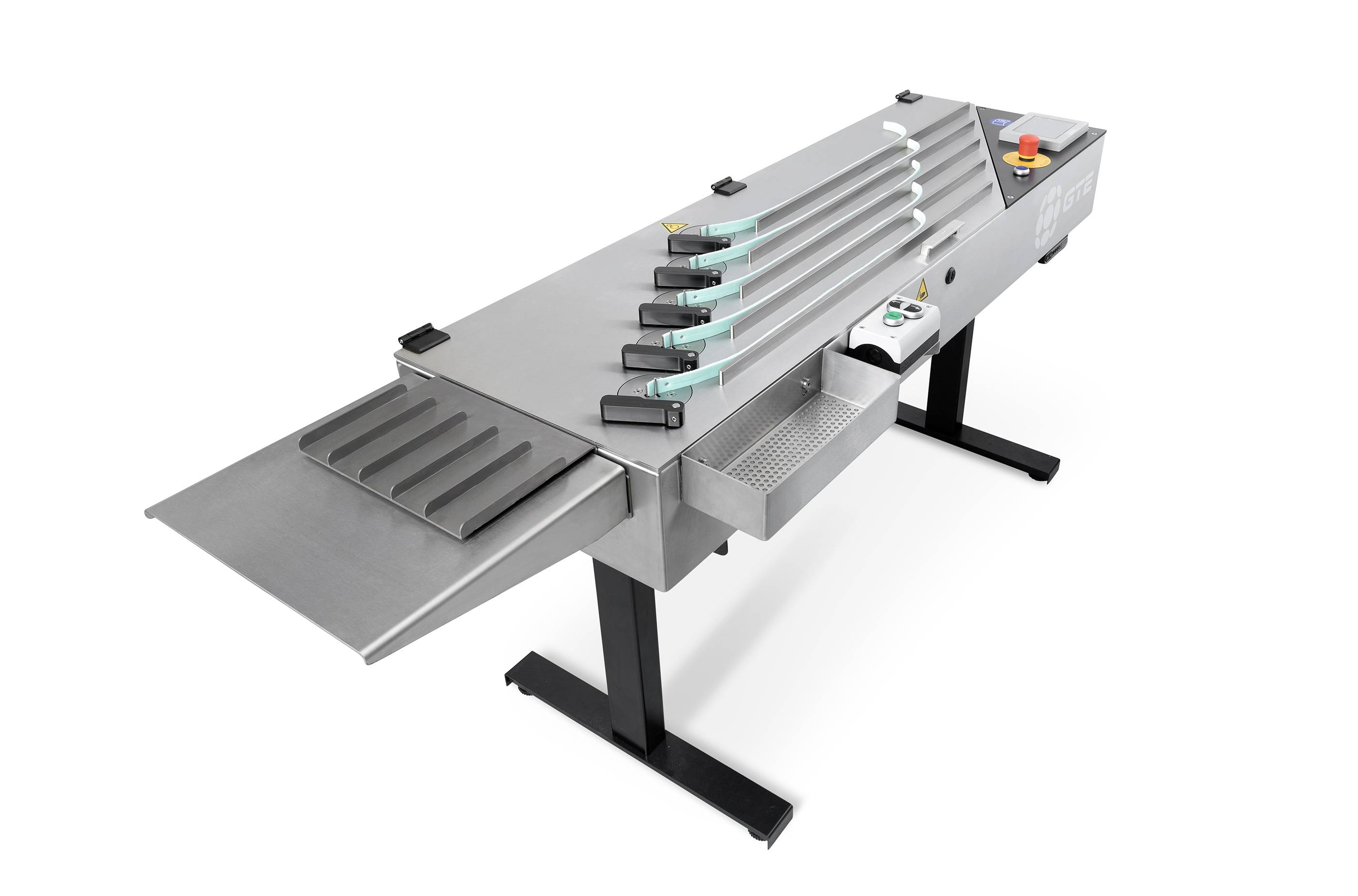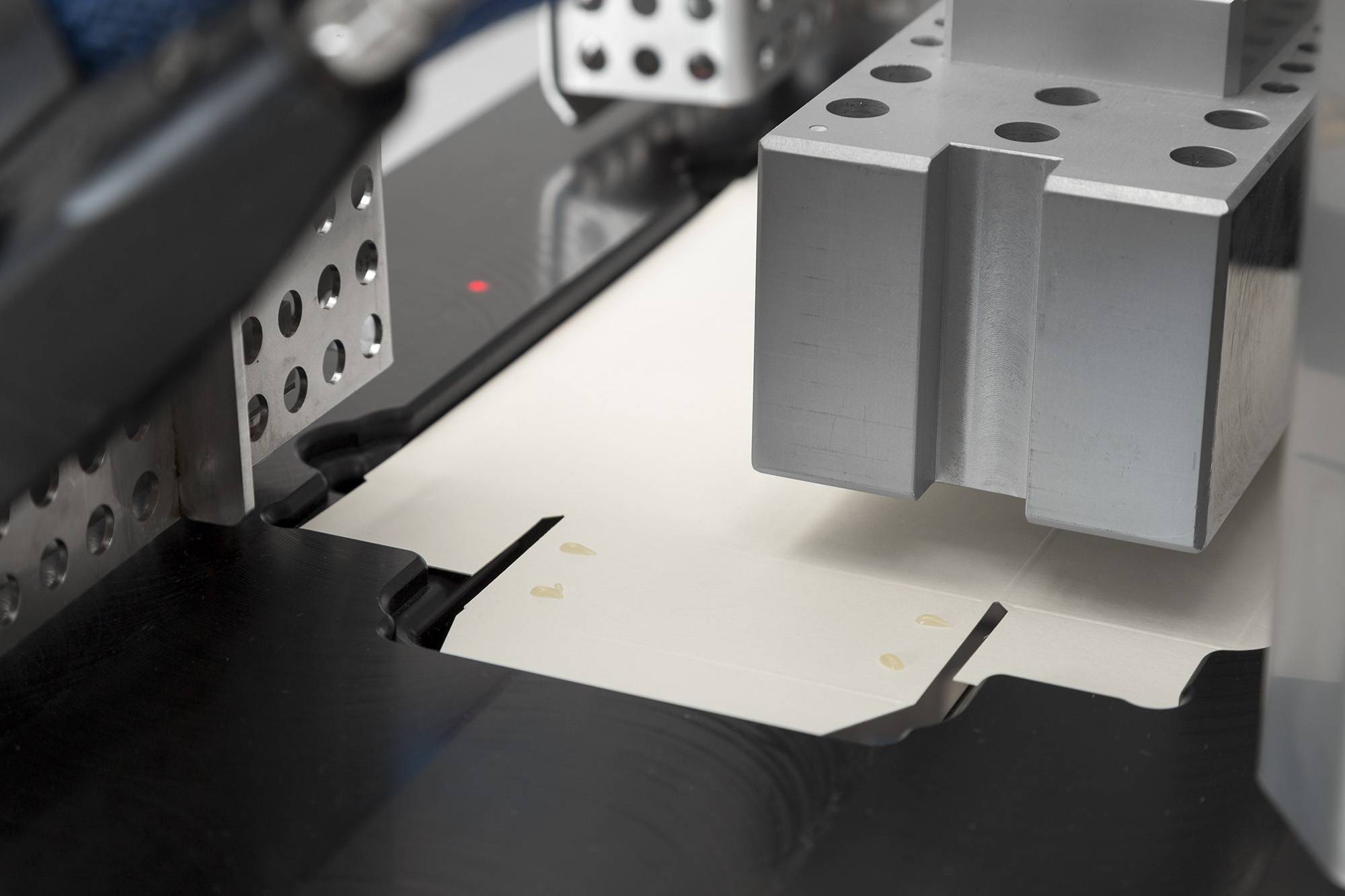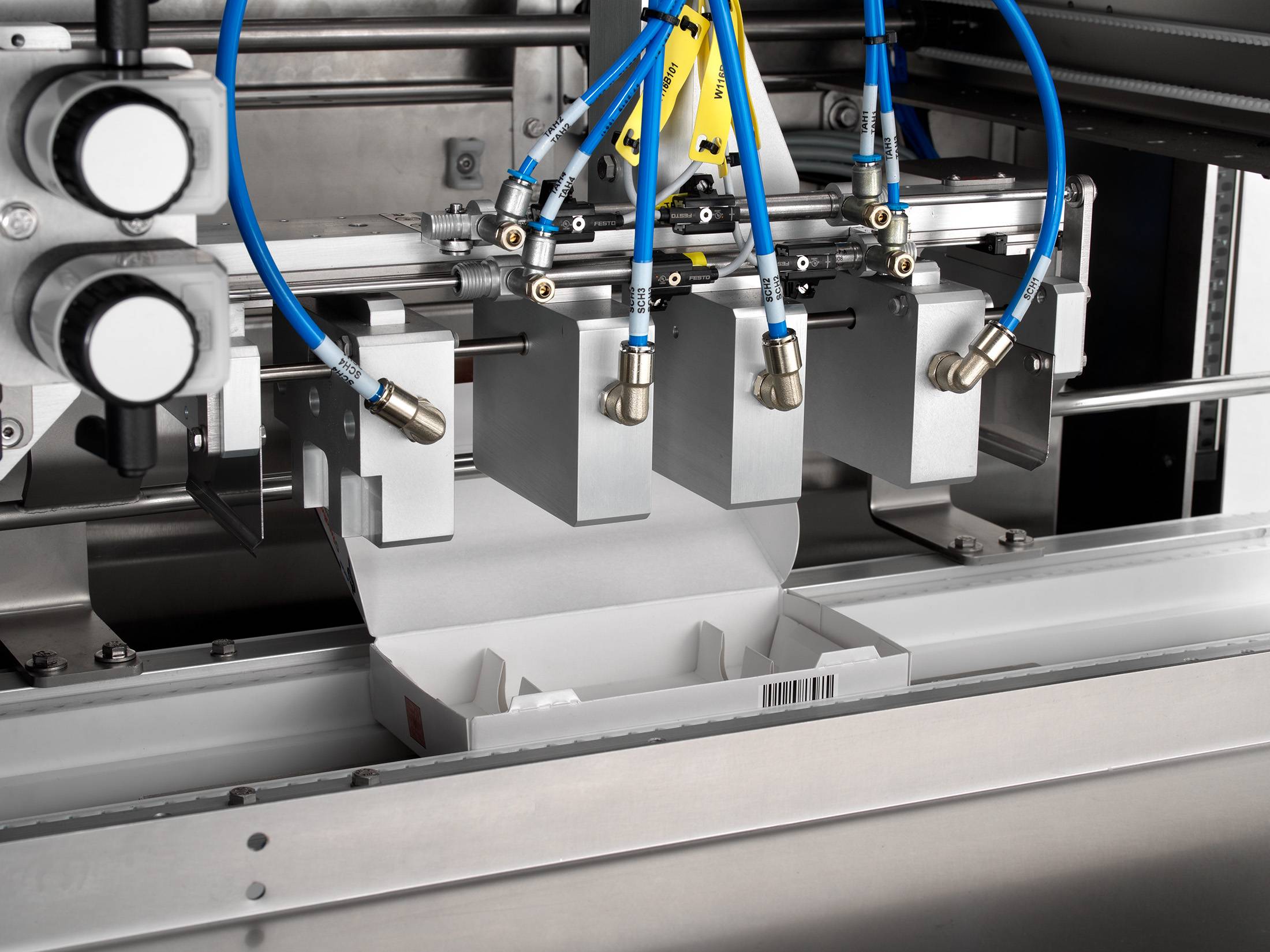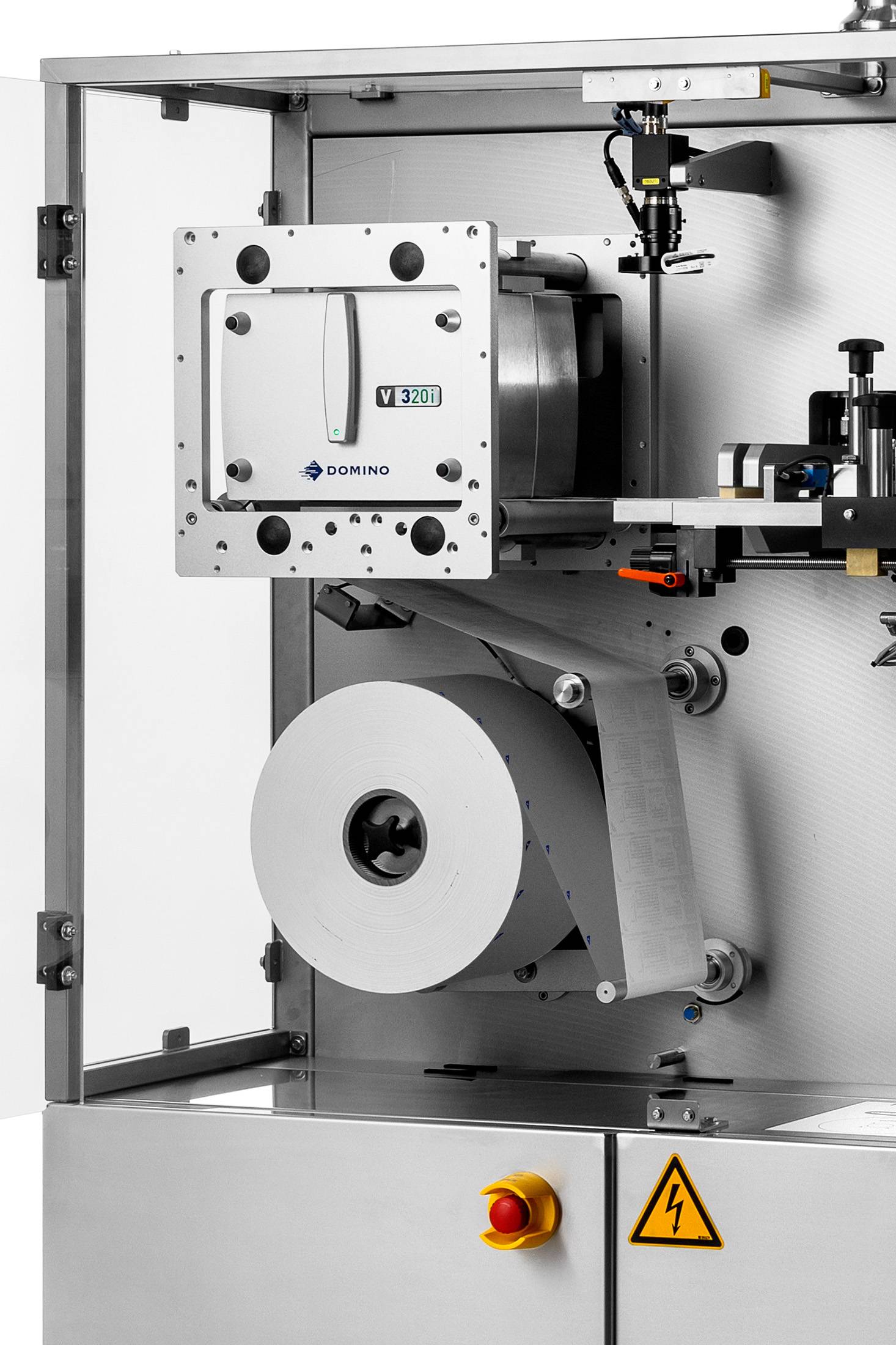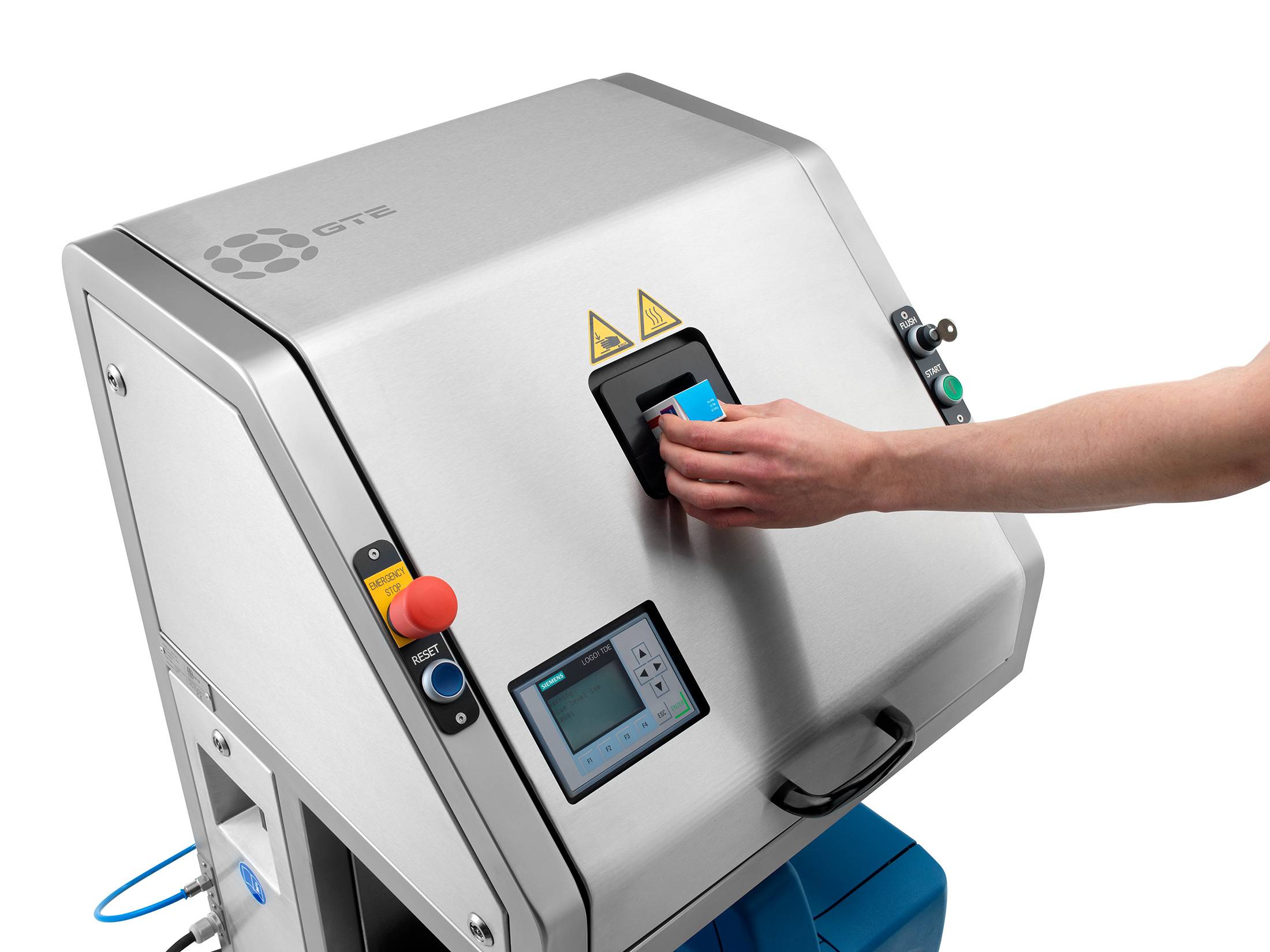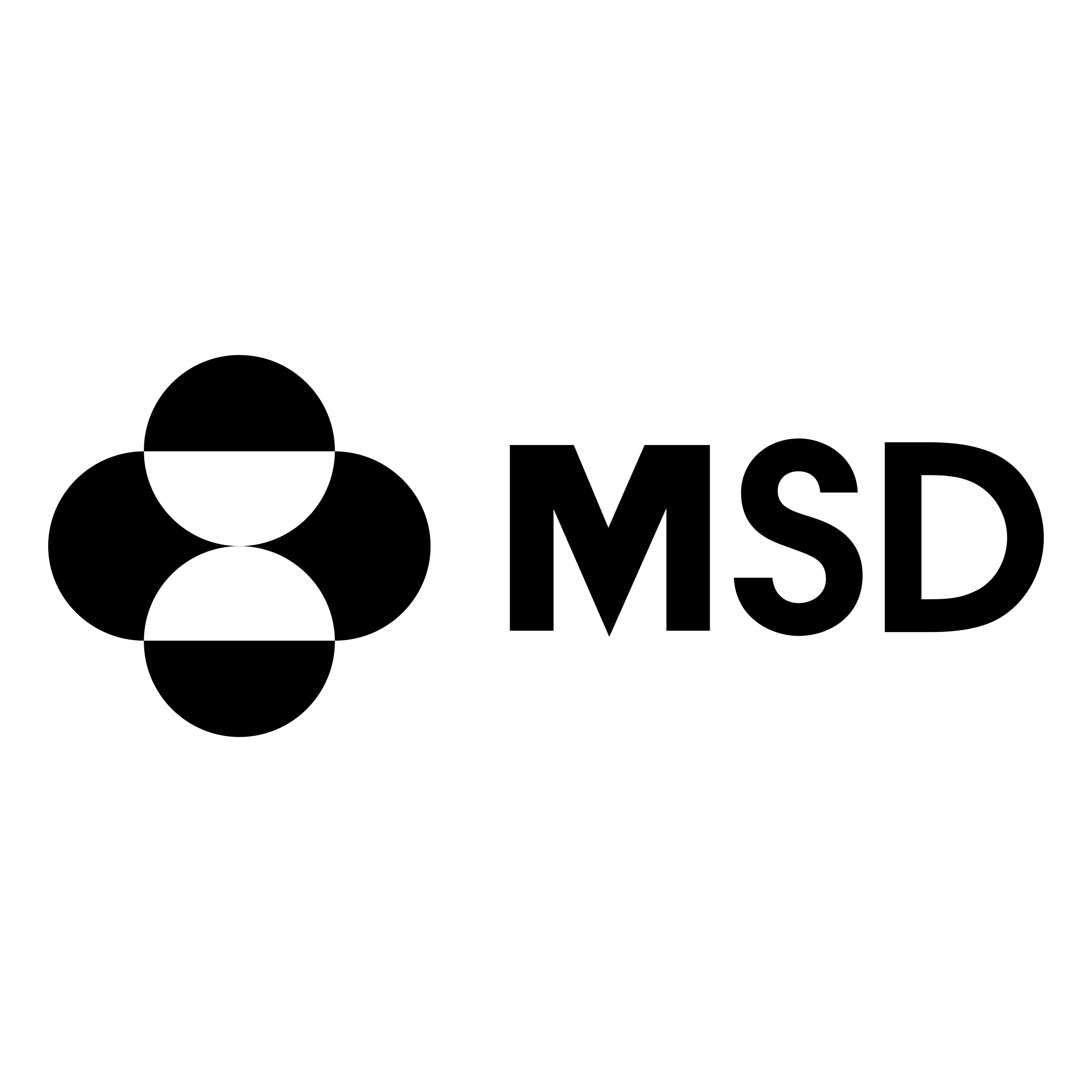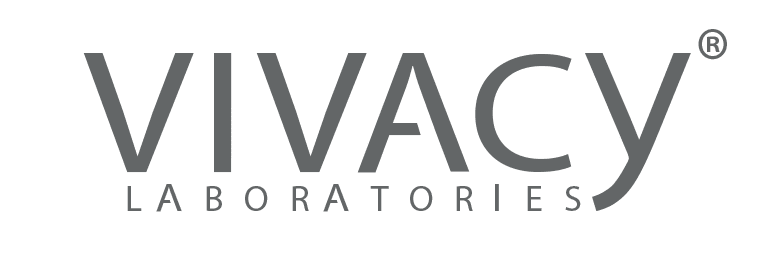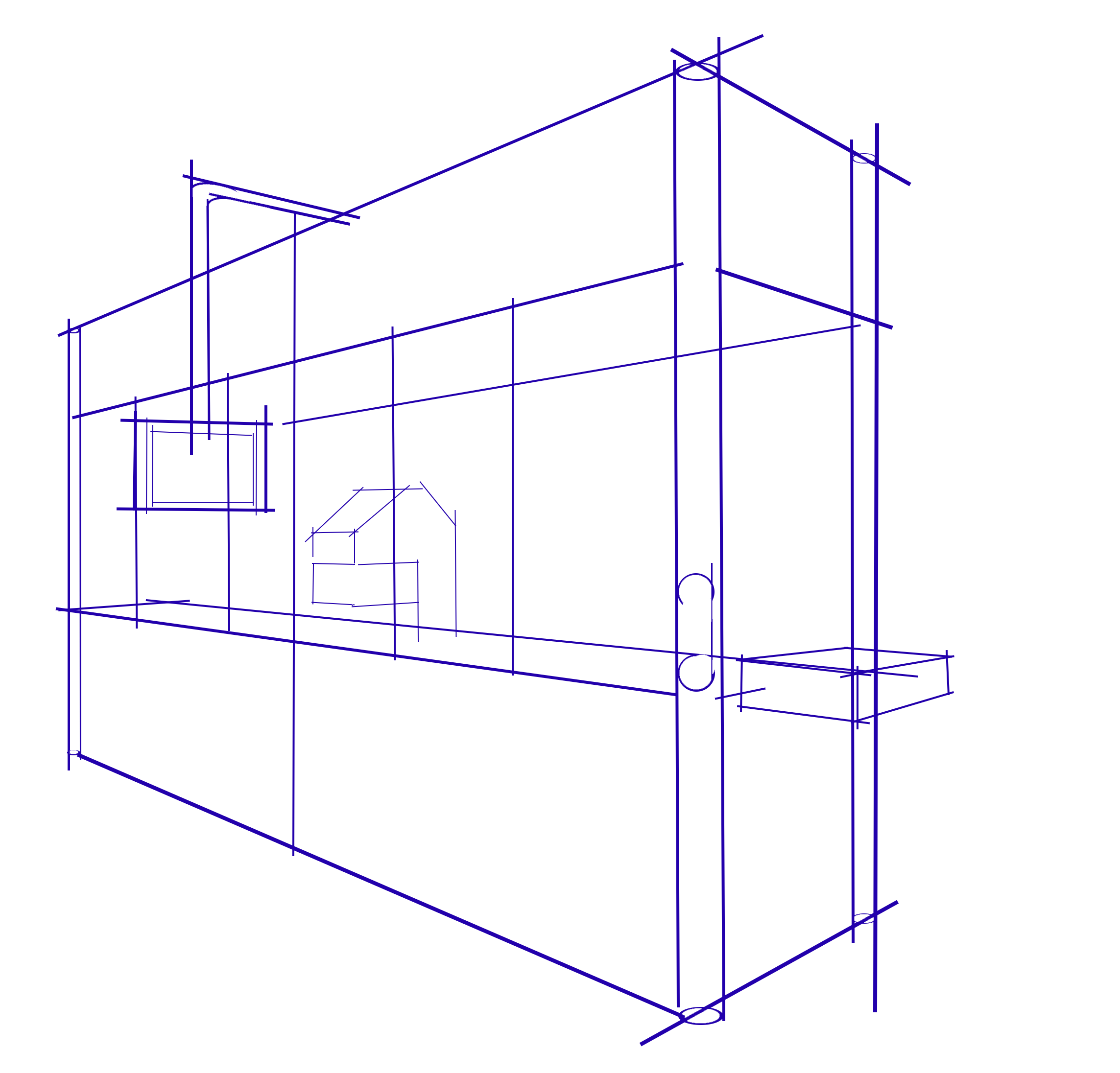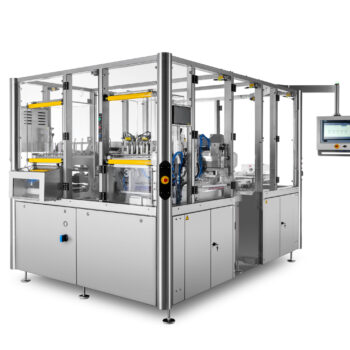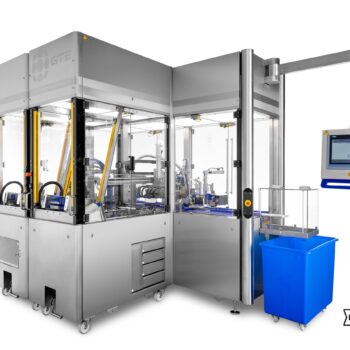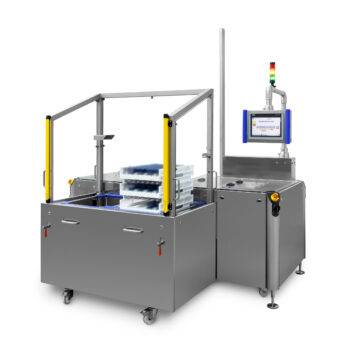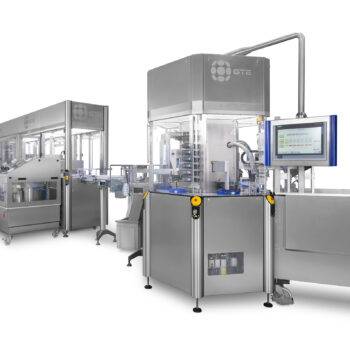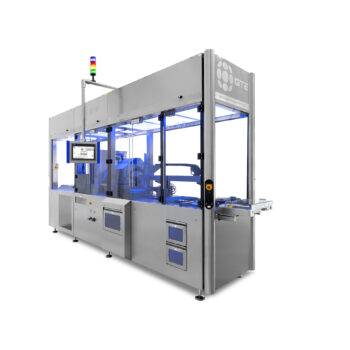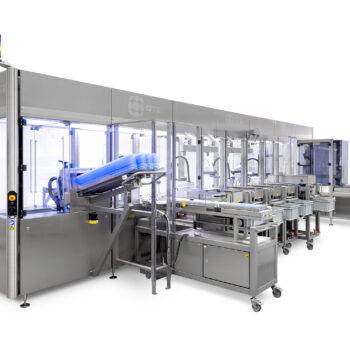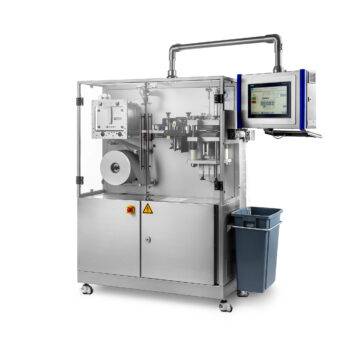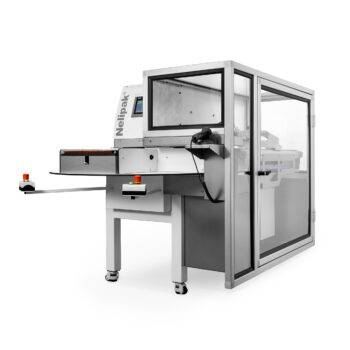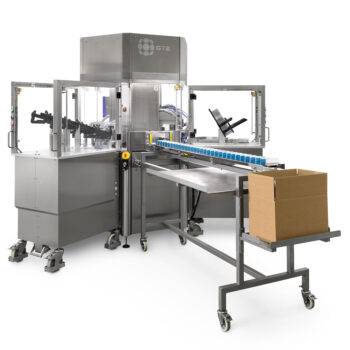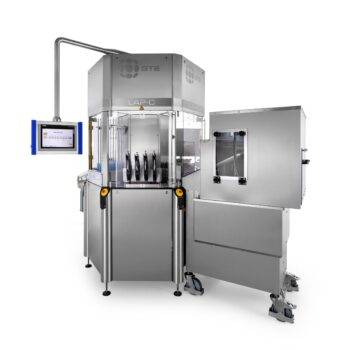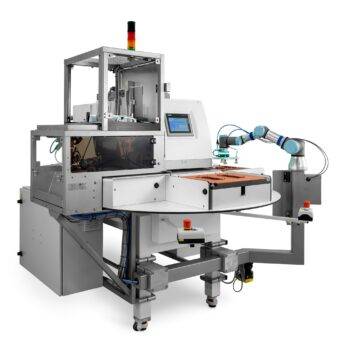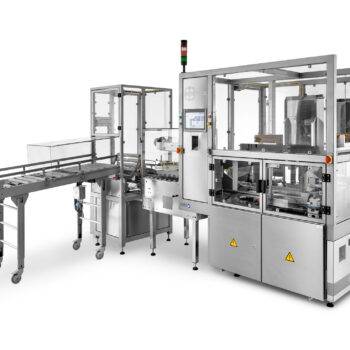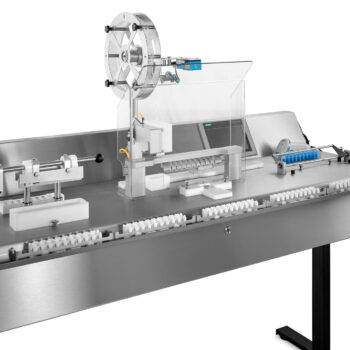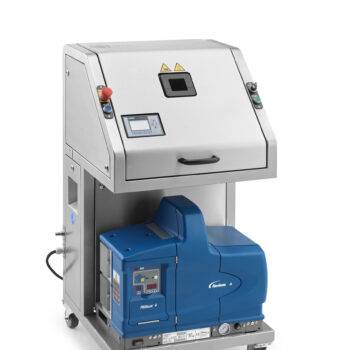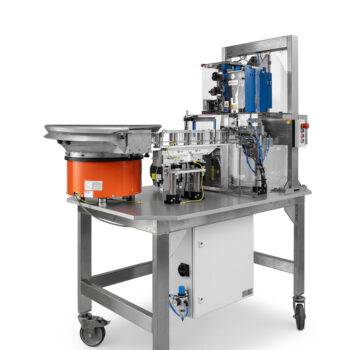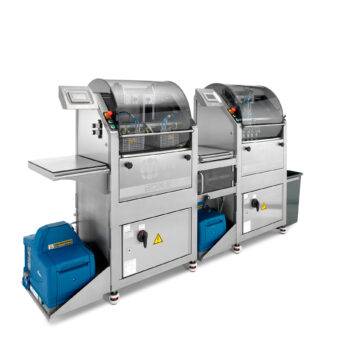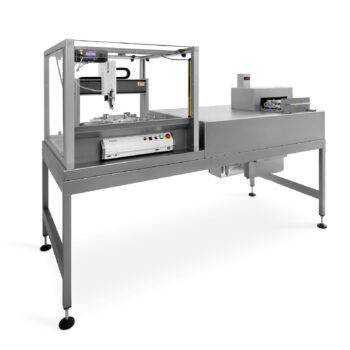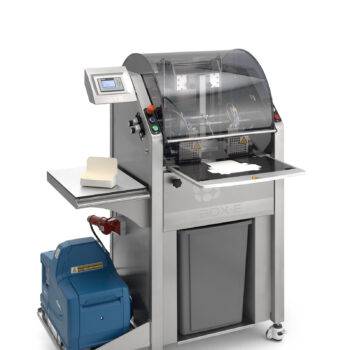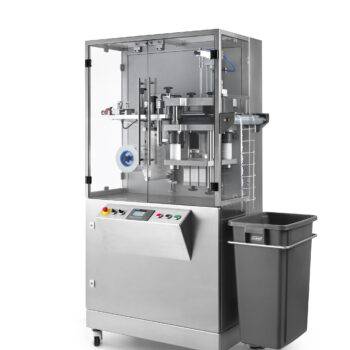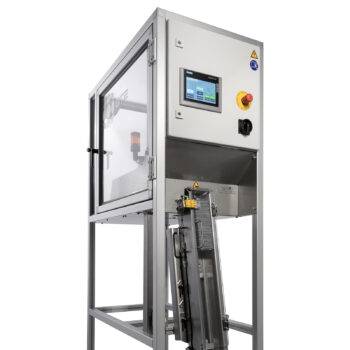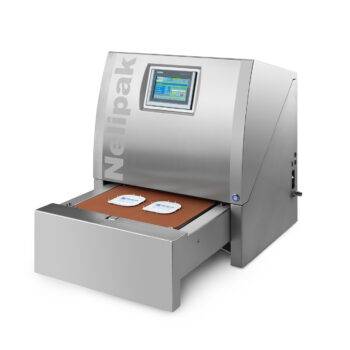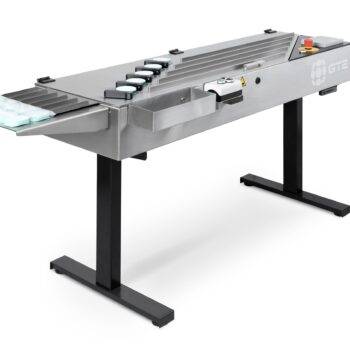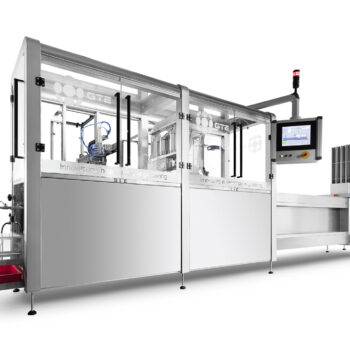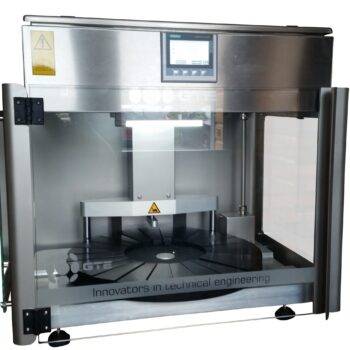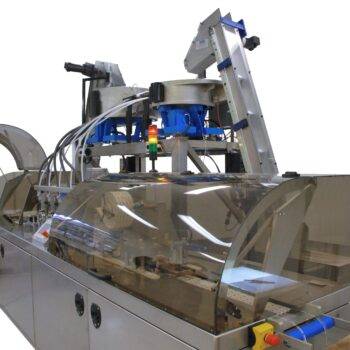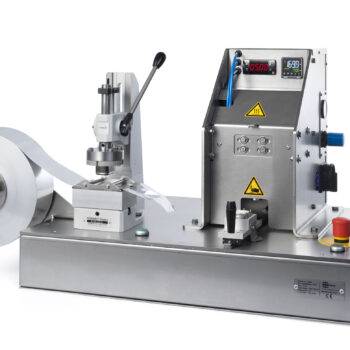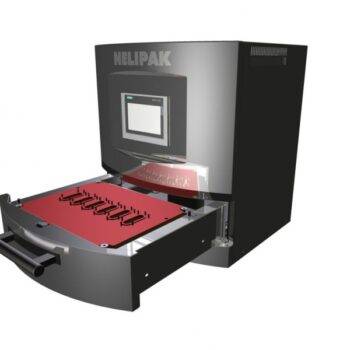
Liquid filling
Filling containers or other carriers with liquid is precision work and takes an awful lot of time when done manually. That’s why we’ve developed several tailor-made solutions that make Liquid Filling faster and less error-prone. In short: automating this process makes it precise and efficient.


Liquid Filling via Peristaltic pump
One of the technologies we implement in our machines is the peristaltic pump. With this pump, you can dose liquids in a precise and controlled way through the pump’s rolling movements.

Plunger pump for Liquid Filling
A plunger pump is another option. This pump allows you to dispense large quantities of liquid quickly and efficiently by using a plunger and cylinder, turning the filling process into a quick and hassle-free task.
We also offer a syringe pump for very precise and controlled dosing. This pump allows you to add the smallest amounts of liquid with precision, giving you optimal results when filling your containers.


Liquid Filling applications
Our Liquid Filling machines are used to fill, among other things, lens implant containers. In this process, an operator places a lens in a container or vial, after which it’s filled with liquid. The container or vial is then pushed through to the sealing machine, which seals it off. Afterwards, the packaging can be disinfected. A Vision Check checks that the packaging doesn’t contain any contamination and that the seal is high-quality. We’ve also developed two machines for automatically spray coating products. One of these machines uses a pulse-spray technology, whereas the other continuously sprays the coating onto the products. Would you like to know whether we can help you with the automated filling of a container with liquid or spray coating products.



Tailored to your needs
Every production process is its own beast. That’s why we always customise our machines and platforms to help you solve your issue as efficiently and appropriately as possible. Looking for a machine that we haven’t developed yet? Take a look at GTE Custom. This line has been developed for machines that are used for very specific purposes and can’t be realised within our GTE Platform.

Get more information
Wondering how the Machine could be useful for your organisation? Request more information using the form below.
"*" indicates required fields

Knowledge & Inspiration
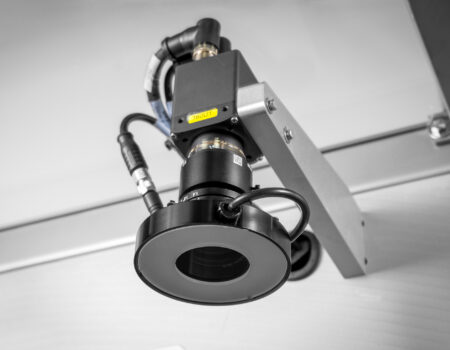
Whitepaper: Everything about vision systems in the pharmaceutical and medical industry
Precision and accuracy are extremely important. Whether they are used for correctly labeling products, or verifying the integrity of packaging, vision systems play a crucial role in any production process. What are their strengths and limitations, how do you prepare for their implementation, and what will the future look like in terms of, for example, AI? We are happy to help you get started; download the free whitepaper!

The Importance of IQ, PQ, and OQ in Machine Construction for the Pharmaceutical and Medical Industry
In the pharmaceutical and medical industries, developing machines that meet the highest quality and regulatory standards is essential. Therefore, the steps of IQ (Installation Qualification), PQ (Performance Qualification), and OQ (Operational Qualification) are followed during the construction of these machines. These qualification tests ensure that machines meet the required standards for installation, operation, and performance, and they are a critical part of the validation process.
At GTE Engineering, we use a traceability matrix and provide support with FAT (Factory Acceptance Test) and SAT (Site Acceptance Test) protocols to make the validation process structured and efficient. This approach guarantees that all requirements are documented and that the machines meet the highest standards in the pharmaceutical and medical industries.
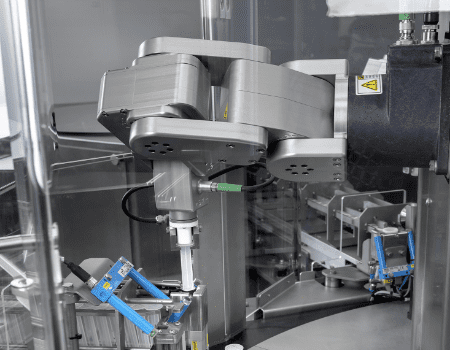
The LAP-C with Mecademic robot
GTE designed and built the LAP-C. A circular platform for assembling and/or packaging medical products. When we design the LAP-C as an assembly machine, we often use a Mecademic robot.
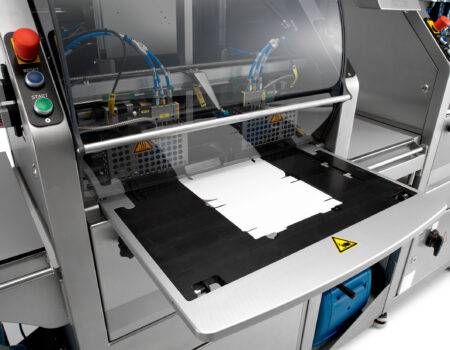
High mix low volume manufacturing
In the pharmaceutical industry, there is a growing demand for high mix low volume manufacturing (HMLV). HMLV signifies that medications and medical devices are increasingly being personalized, tailored more specifically to the patient: a greater variety of medical products combined in smaller quantities.
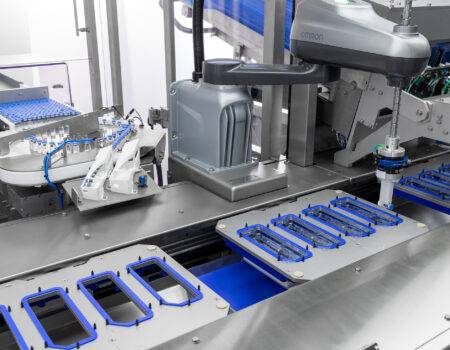
3D printing in engineering– thinking out of the box
Years ago, in 2001, GTE engineering embraced 3D printing for the creation process of its exclusive machines. Until then it was science fiction. Today we can no longer live without it. How do we use 3D printing at GTE and what advantages does it have?
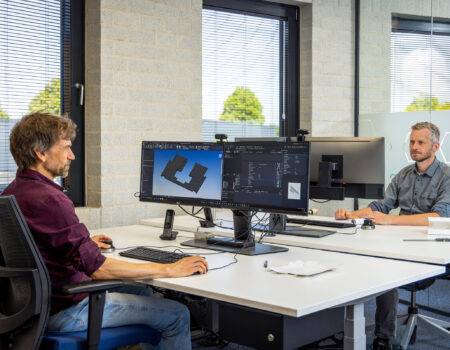
What is ‘Smart Customization’?
ETO, CTO and Smart Customization. Terms that are more often used in mechanical engineering. But what do these terms mean? Everyone working in mechanical engineering should know what development these words describe.
Let us call you back
Curious about how our solutions can be used within your organization? Request more information quickly and easily.
"*" indicates required fields
We are ready to help you!
Mercuriusplein 45971 LW Grubbenvorst (Nederland)

